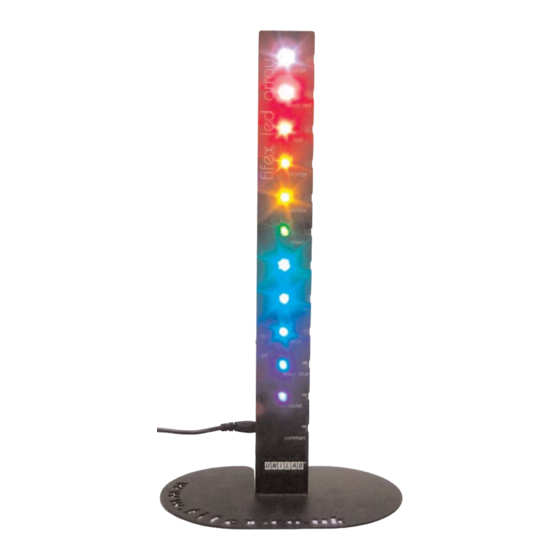
Summary of Contents for unilab The LED Array
- Page 1 The LED Array ™ Notes for Use 721 UNILAB L75279 v. 06/03 FifeX and UNILAB would like to acknowledge the support of Jim Jamieson (SSERC) and the Fife schools, in developing this exciting new product. UNILAB...
- Page 2 Description The LED Array™ LED data Suggested experiments The LED Array™ is a robust and attractive 1. Colour, and the effects of colour filters LED colour wavelength frequency device comprising 1 white LED and a set of 10 coloured LEDs from red to violet, white 2.
- Page 3 “double filter” and The lengths of these imaginary waves are compared with violet light? look at the LED array again. You should proportional to the actual wavelengths of Change the wavelength or the size and find that the blocking of other colours is the light.
- Page 4 Support a sheet of A3 card or paper, Without disturbing the card, measure the = 0.00333 x 10 vertically, to one side of the LED array, this Errors distance, , from the centre line of the LED d = 3.33 x 10...
- Page 5 5. How LEDs generate light Calculating photon energy Use a voltmeter(e.g. Unilab Easy Read wth Complete the table with frequency and In the p-region of an LED, there are many The energy of the light emitted is related 20V d.c. attachment) to measure the forward voltage values for each LED.
- Page 6 A complete set of results is given below. The correct connector is a miniature the energy input, eV, is released as socket in the side of the LED array. power jack with 5.5mm external and photon energy, hf. 3. Check the output voltage of the d.c.

Need help?
Do you have a question about the The LED Array and is the answer not in the manual?
Questions and answers